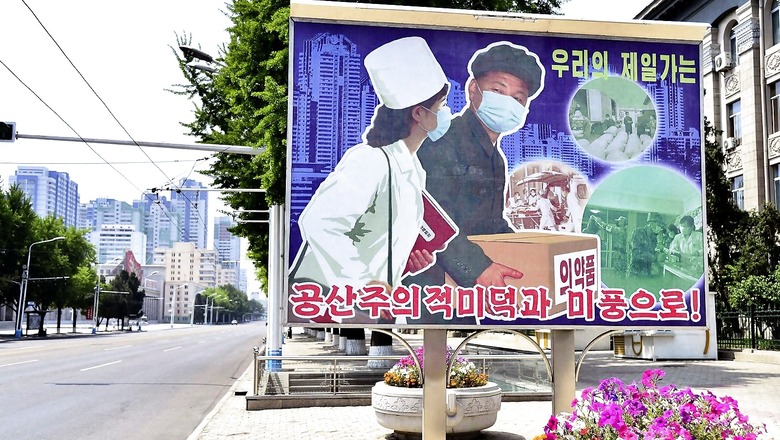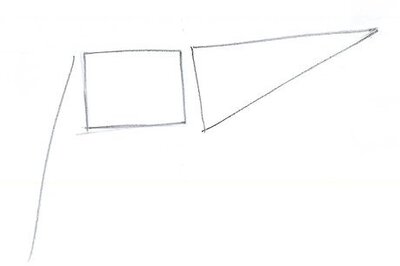
views
A top official at the World Health Organization said the UN health agency assumes the coronavirus outbreak in North Korea is “getting worse, not better,” despite the secretive country’s recent claims that Covid-19 is slowing there.
At a briefing on Wednesday, WHO’s emergencies chief Dr Mike Ryan appealed to North Korean authorities for more information about the COVID-19 outbreak there, saying “we have real issues in getting access to the raw data and to the actual situation on the ground.” He said WHO has not received any privileged information about the epidemic — unlike in typical outbreaks when countries may share more sensitive data with the organization so it can evaluate the public health risks for the global community.
“It is very, very difficult to provide a proper analysis to the world when we don’t have access to the necessary data,” he said. WHO has previously voiced concerns about the impact of COVID-19 in North Korea’s population, which is believed to be largely unvaccinated and whose fragile health systems could struggle to deal with a surge of cases prompted by the super-infectious omicron and its subvariants.
Ryan said WHO had offered technical assistance and supplies to North Korean officials multiple times, including offering Covid-19 vaccines on at least three separate occasions.
North Korean Officials Not Accepting Foreign Aid?
North Korea’s claims to have controlled COVID-19 without widespread vaccination, lockdowns or drugs have been met with widespread disbelief, particularly its insistence that only dozens have died among many millions infected — a far lower death rate than seen anywhere else in the world.
The North Korean government has said there are about 3.7 million people with fever or suspected COVID-19. But it disclosed few details about the severity of illness or how many people have recovered, frustrating public health experts’ attempt to understand the extent of the outbreak.
“We really would appeal for for a more open approach so we can come to the assistance of the people of (North Korea), because right now we are not in a position to make an adequate risk assessment of the situation on the ground,” Ryan said. He said WHO was working with neighboring countries like China and South Korea to ascertain more about what might be happening in North Korea, saying that the epidemic there could potentially have global implications.
‘They Can No Longer Ignore It’
According to reports, experts think North Korea is likely to reject practically all international anti-virus assistance, at least for the time being.
In late April, Pyongyang began testing North Koreans for the virus. Authorities in the country reported a Covid-19 outbreak last week. The regime said there were no cases in North Korea for more than two years prior to the admission.
Bruce Klingner, former CIA deputy division chief for Korea and a current senior research fellow at The Heritage Foundation, told Voa News in an earlier report the admission is “not yet” an outcry seeking help from the international community but a panic-stricken response to the uncontrollable spread.
“That final admission that they actually have cases now was because the situation became so dire that they can no longer ignore it or deny it,” said Klingner.
No Direct Request But to China
International humanitarian agencies have not received any direct requests from North Korean leader Kim Jong Un for assistance in combating the virus, reports said.
Pyongyang has yet to respond to Seoul’s offer of talks on anti-virus assistance. The South Korean Ministry of Unification had earlier in May sent a telegram to North Korea, requesting working-level negotiations on distributing vaccines, masks, and test kits to the afflicted areas.
But according to South Korea’s Yonhap News Agency on Sunday, Pyongyang reportedly approached Beijing for assistance with medical supplies and equipment shortly after the outbreak.
‘Scared to Show Weaknesses’
Robert Manning, senior fellow at the Atlantic Council told Voa News that ignoring Seoul’s offer for help while accepting aid from Beijing “is, to some extent, a case of an authoritarian regime scared to show any weaknesses.” He added, “But as this pandemic spreads, Kim may have no choice” but to ask for any help he could get.
‘Aid a Sinister Political Scheme’
US humanitarian aid is a “sinister political scheme” to put pressure on other countries, a North Korean researcher had said last year, after suggestions from US allies such as South Korea that coronavirus vaccines or other help could promote cooperation, according to a report by NBC News.
Kang Hyon Chol, identified as a senior researcher at the ministry-affiliated Association for the Promotion of International Economic and Technological Exchange, listed a series of examples from around the world that he said highlight a U.S. practice of linking aid to its foreign policy goals or pressure on human rights issues.
“This vividly reveals that the American ulterior intention of linking ‘humanitarian assistance’ with ‘human rights issue’ is to legitimize their pressure on the sovereign states and achieve their sinister political scheme,” Kang wrote.
Pressure on the Regime
For now, the greatest danger to Kim’s authoritarian rule does not come from the general population, but from the country’s elite. However, from the very beginning of the pandemic, the North Korean leadership has done its utmost to protect the elite, providing masks, requiring social distancing and privileged access to healthcare.
Elderly people in the remote countryside are most at risk. But the combination of increasing food scarcity, the economic consequences of domestic restrictions, the downturn in trade and the virtual collapse of informal markets due to the trade restrictions means that there are genuine risks to the stability of North Korea. Kim may be forced to accept more international help and reduce the burden of sanctions to control the situation.
This may explain the recent frequency of missile launches and preparations for a further nuclear test. As in the past, North Korea may seek to put pressure on the international community as a means to increase its bargaining power with the US.
With inputs from the Conversation via PTI
Read all the Latest Explainers here















Comments
0 comment